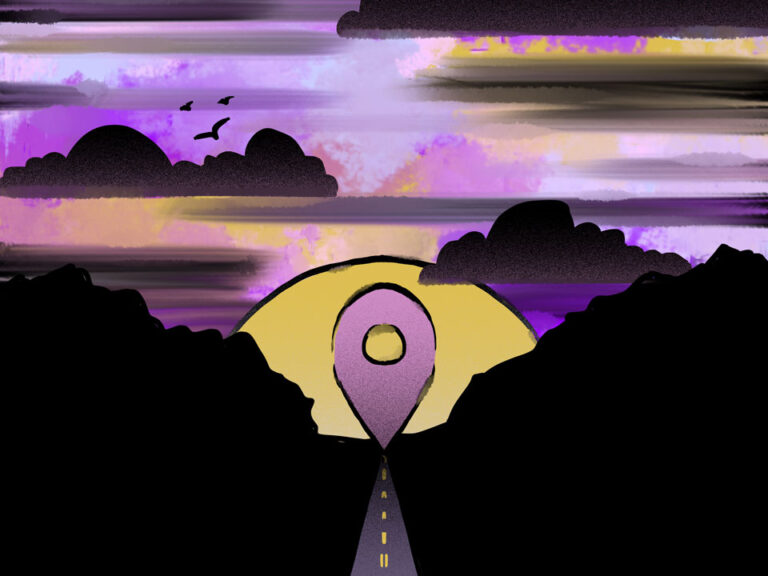This June, the Cancer History Project will be focusing on the stories of survivors. Today, we are highlighting a 1991 excerpt from the National Coalition for Cancer Survivorship’s quarterly publication, the NCCS Networker, with commentary by Lovell Jones, a researcher whose work focuses on health disparities.
Also in this issue: a selection of SWOG’s 2016 StoryCorps recordings, which includes three recordings covering the history of SWOG and interviews with cancer survivors.
A collection of survivor stories can be found here. This month, contributors to the Cancer History Project are encouraged to submit articles about cancer survivors. Learn more about becoming a contributor below.
Primary source: A 1991 NCCS Networker interview with Lovell Jones


- NCCS Networker Spring 1991 – Interview with Lovell Jones on minority role models
By National Coalition for Cancer Survivorship
This interview with Lovell Jones was originally published in the NCCS Networker Volume 5 Issue 2, Spring 1991.
If you could bring forth survivors and make them visible, you would combat the myth that cancer is an automatic death sentence. Then you could start to pull people into screening programs. They would learn that if they go in for care earlier, they can survive.
Lovell Jones
Jones was an early researcher of health disparities research in cancer. Jones is founder of the HDEART Consortium, adjunct professor in the Department of Health Promotion & Community Health Sciences at Texas A&M School of Public Health, and research professor at Texas A&M University Corpus Christi.
At this time, he is also professor emeritus in the Department of Health Disparities Research at the University of Texas MD Anderson Cancer Center as well as the University of Texas Graduate School of Biomedical Sciences.
“When my school teacher mother, who is not low-income, developed breast cancer, she waited until she had a massive lump before she went in for care,” Jones said to Networker editor Natalie Davis Spingarn. “She was afraid of the idea of going in. She thought a diagnosis of cancer meant automatic death.”
- NCCS Networker Volume 5 Issue 2, Spring 1991
By National Coalition for Cancer Survivorship | April 13, 1991
Highlights from this issue:
- Survivors Day: Petitioning for Health Insurance Reform
Cancer survivors across the US celebrated National Cancer Survivors Day while urging the need for health insurance for all Americans. - Cancer: A Tough Enemy – No Equal Opportunity for the Disadvantaged
Cancer strikes poor people more often, leaving them with lower survival rates; thoughts from Charles A. LeMaistre, MD - Needed: Minority Role Models—Q&A with Lovell Jones
Recent LaSalle D. Leffall Award recipient spoke with Natalie Davis Spingarn on cancer disparities. - Poverty, Race and Lifestyle: “The Prism of Culture”
New government study shows links between poverty and race with cancer incidence. - Advocacy Update, by Albert L. Siu, MD, MSPH
Cancer burdens are higher amongst black Americans due to issues with prevention, early detection, and treatment.
StoryCorps: SWOG Cancer Research Network


- Cancer Histories from SWOG Cancer Research Network’s 60th Anniversary
By The Hope Foundation | May 25, 2022
These three conversations were originally recorded as part of the SWOG Stories series, a collection of diverse perspectives from across the Group collected as part of its 60th anniversary celebration in 2016. Captured in collaboration with StoryCorps in Chicago.
The conversations include:
- Craig and Amy Blanford speak with Craig’s oncologist, Dr. Ian Thompson. This piece details Craig’s journey with bladder cancer, from diagnosis to treatment, and how a clinical trial changed his life.
- Patient advocate Amy Geschwender shares her cancer story with Wendy Lawton. As a brain cancer survivor, Amy learned extensively about her condition, including the long-term physical changes it caused, the strain it put on her family, and her determination to beat difficult odds. Here she shares unique insights gained in the years since her diagnosis.
- In this segment, Dr. Lara Davis and patient advocate Heidi Adams discuss the AYA cancer experience, including the unique issues adolescent and young adult patients face funding care, managing pain, preserving fertility, and navigating the chasm between pediatric and adult treatment protocols.
This column features the latest posts to the Cancer History Project by our growing list of contributors.
The Cancer History Project is a free, web-based, collaborative resource intended to mark the 50th anniversary of the National Cancer Act and designed to continue in perpetuity. The objective is to assemble a robust collection of historical documents and make them freely available.
Access to the Cancer History Project is open to the public at CancerHistoryProject.com. You can also follow us on Twitter at @CancerHistProj, or follow our podcast.
Is your institution a contributor to the Cancer History Project? Eligible institutions include cancer centers, advocacy groups, professional societies, pharmaceutical companies, and key organizations in oncology.
To apply to become a contributor, please contact admin@cancerhistoryproject.com.









